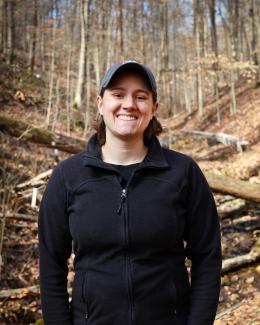Abstract
Climate warming is expected to accelerate peatland degradation and release rates of carbon dioxide (CO2) and methane (CH4). Spruce and Peatlands Responses Under Changing Environments is an ecosystem-scale climate manipulation experiment, designed to examine peatland ecosystem response to climate forcings. We examined whether heating up to +9 °C to 3 m-deep in a peat bog over a 7-year period led to higher C turnover and CO2 and CH4 emissions, by measuring 14C of solid peat, dissolved organic carbon (DOC), CH4, and dissolved CO2 (DIC). DOC, a major substrate for heterotrophic respiration, increased significantly with warming. There was no 7-year trend in the DI14 C of the ambient plots which remained similar to their DO14 C. At +6.75 °C and +9 °C, the 14C of DIC, a product of microbial respiration, initially resembled ambient plots but became more depleted over 7 years of warming. We attributed the shifts in DI14 C to the increasing importance of solid phase peat as a substrate for microbial respiration and quantified this shift via the radiocarbon mass balance. The mass-balance model revealed increases in peat-supported respiration of the catotelm depths in heated plots over time and relative to ambient enclosures, from a baseline of 20%–25% in ambient enclosures, to 35%–40% in the heated plots. We find that warming stimulates microorganisms to respire ancient peat C, deposited under prior climate (cooler) conditions. This apparent destabilization of the large peat C reservoir has implications for peatland-climate feedbacks especially if the balance of the peatland is tipped from net C sink to C source.



